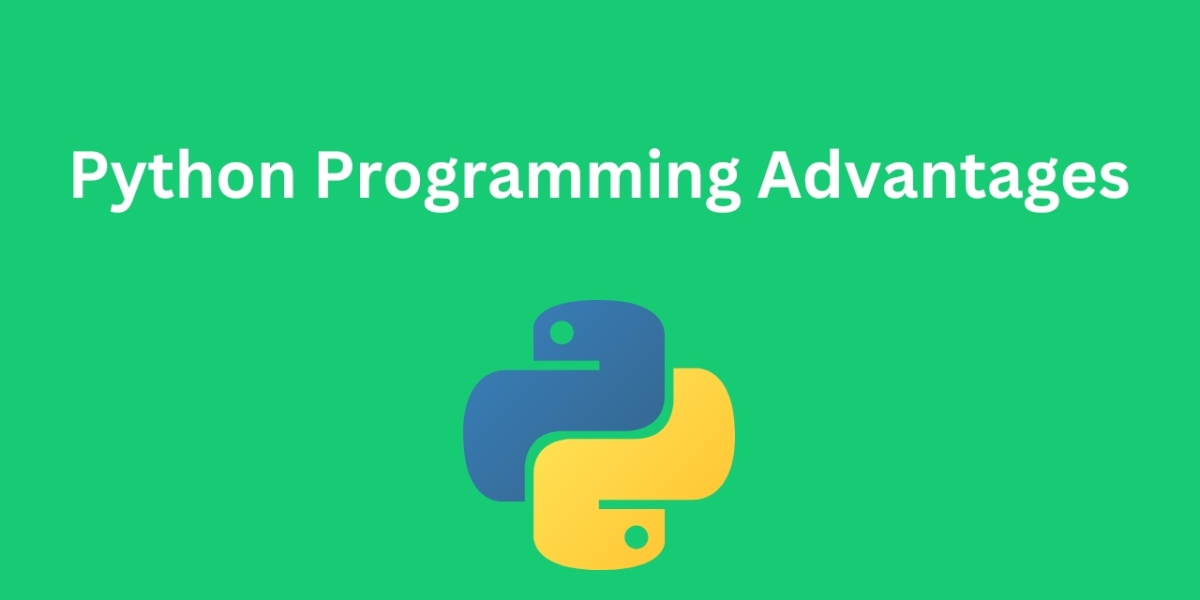Introduction
Python is popular in many fields. Regardless of your level of experience, you may be curious about the reasons behind Python's widespread popularity. Let's explore the importance of selecting the appropriate programming language and why Python distinguishes itself.
History of Python
Origin and Development
Python was developed by Guido van Rossum and made available to the public in 1991 with a focus on readability and user-friendliness, distinguishing it from other programming languages at the time.
Python has evolved a lot over time. It is now a versatile and strong programming language. Regular updates and a dedicated community help it adapt to new technologies and user needs.
Ease of Learning
Simple Syntax
Python's simple and clear syntax is a big plus. It focuses on readability, making it easy for beginners.
Readability and Clarity
Python code is often compared to English. New programmers can understand concepts without complex syntax rules. This helps in writing and maintaining clean code, which is key for long-term projects.
Versatility
Multi-Purpose Language
Python is very versatile. It's used in web development, data analysis, AI, scientific computing, and more. You can use one language for many projects.
Cross-Platform Compatibility
Python works on Windows, macOS, and various Linux distributions. This ensures your Python applications can run anywhere without problems.
Extensive Libraries and Frameworks
Popular Libraries
Python offers a wide range of libraries that facilitate the execution of tasks with ease. For instance, NumPy and Pandas are particularly useful for data manipulation and analysis.
Try Python online compiler, It is compatible with all libraries and modules.
Web Frameworks
Frameworks like Django and Flask make web development easier. They provide tools to build robust web applications quickly.
Scientific Computing and Data Analysis Libraries
For scientific fields, libraries like SciPy and Matplotlib offer advanced features. This makes Python a favorite among researchers and data scientists.
Community Support
Active Community
Python's active community is a big advantage. The large user base offers many resources, forums, and discussion groups for help and knowledge sharing.
Abundance of Resources and Tutorials
There are countless tutorials, documentation, and online courses for Python. Whether you learn by yourself or prefer classes, there's a resource for you.
Integration and Extensibility
Integration with Other Languages
Python integrates well with languages like C, C++, and Java. This allows developers to use Python alongside other technologies smoothly.
Extensibility Features
Python is very extensible. You can add new features and functionalities as needed. This is important for developing scalable applications.
Popularity in Various Domains
Web Development
Python is popular for web development because of its simplicity and powerful frameworks. It helps developers create dynamic and high-performance websites easily.
Data Science and Machine Learning
Python serves as the primary programming language for data science and machine learning tasks. Frameworks such as TensorFlow, Keras, and scikit-learn offer a wide range of tools for constructing intricate models and conducting efficient data analysis.
Automation and Scripting
Python's scripting capabilities make it an excellent choice for automation tasks. Whether it's a basic script or a sophisticated automation framework, Python is capable of handling any level of complexity.
Game Development
Python offers frameworks like Pygame for game development. This lets developers create engaging games and simulations.
Job Market Demand
High Demand for Python Developers
Python developers are in high demand in many industries. Companies value the language's versatility and efficiency, leading to more job opportunities for skilled programmers.
Competitive Salaries
Due to high demand, Python developers often get competitive salaries. Learning Python can be a valuable and potentially lucrative skill.
Scalability and Performance
Scalability in Large Projects
Python's design supports scalability. It's suitable for both small and large projects. Many major companies use Python to develop and maintain their software, showing its effectiveness in handling complex systems.
Performance Optimization
While Python may not be the fastest language, it offers ways to optimize performance. Tools and libraries improve execution speed and efficiency, ensuring your applications run smoothly.
Open Source and Free
Benefits of Open Source
Being open source, Python benefits from global developer contributions. This results in continuous improvements and a wide range of tools and libraries.
Cost-Effectiveness
Python is free to use, lowering the barrier to entry for individuals and companies. This is especially beneficial for startups and educational institutions.
Security Features
Built-in Security Features
Python has several built-in security features to protect your code and data. These features help write secure applications and reduce common vulnerabilities.
Best Practices for Secure Coding
The Python community promotes best practices for secure coding. Following these guidelines ensures your applications are robust and secure.
Educational Use
Popularity in Academia
Python's simplicity and readability make it popular in academia. Many universities and schools use Python to teach programming, ensuring students learn a practical and widely-used language.
Use in Teaching Programming Concepts
Python is great for teaching basic programming concepts. Its clear syntax lets students focus on learning coding logic and structure without getting overwhelmed by complex rules.
Future Prospects
Ongoing Development and Updates
Python has a bright future with ongoing development and regular updates. The language keeps evolving with new features to stay relevant in the fast-paced tech world.
Trends in Python Programming
Trends like AI, machine learning, and data science will keep Python at the top. As these fields grow, Python skills will become even more important.
Conclusion
Python programming advantages make it an excellent choice for automation tasks. Whether it's a basic script or a sophisticated automation framework, Python is capable of handling any level of complexity.
FAQs
Why is Python so popular?
Python is popular because it's simple, versatile, and has powerful libraries. It's easy to learn and use, making it a favorite for beginners and experts alike.
Is Python good for beginners?
Yes, Python is great for beginners. Its simple syntax and readability make it easy to understand basic programming concepts.
What are some common applications of Python?
Python is used in web development, data science, machine learning, automation, scripting, and even game development. This shows its versatility.
How does Python compare to other languages like Java or C++?
Python is generally easier to learn and use than Java or C++. While it might not match their performance in some areas, its simplicity and extensive libraries make it a strong competitor.
What are the career prospects for Python developers?
Python developers are in high demand with opportunities in many industries and competitive salaries. The language's versatility and wide use lead to strong career prospects.









